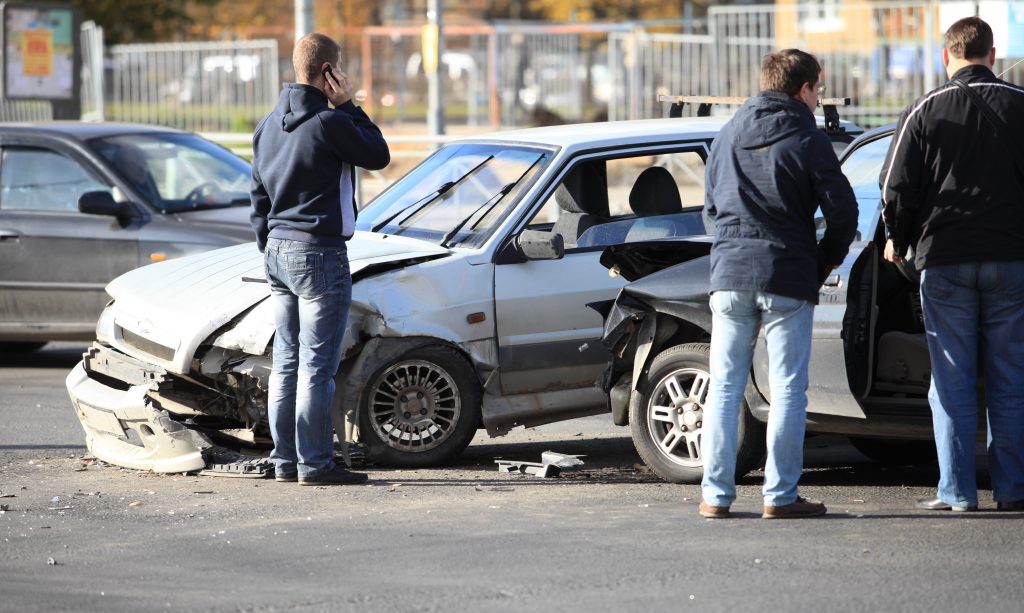
After a collision, what you say, sign, or share can make or break your case. Even small errors can give an insurance company ammunition to deny or delay your claim. Below is a Phoenix-focused guide on what to do after a car accident Phoenix AZ—our recommended do’s and don’ts to protect your rights and your injury claim.
 DO — Stay Organized, Honest & Communicative
DO — Stay Organized, Honest & Communicative
- Get medical care immediately
Your first priority is checking for injuries and calling 911 if needed. Some injuries (like internal trauma or whiplash) may not manifest symptoms right away, so prompt evaluation is critical. - Exchange the essential information (without admitting fault)
Under Arizona law, you must share your name, address, driver’s license number, and vehicle registration. Be factual—don’t say “I’m sorry,” “It’s my fault,” or speculate about blame. Let the facts speak for themselves. - Document the crash scene thoroughly
Take clear photos and videos of: vehicle damage (multiple angles), license plates, road signs, skid marks, traffic signals, surrounding environment, and visible injuries. Also gather contact info from any witnesses. - Notify law enforcement and get an official crash report
If there are injuries, deaths, or significant property damage, a police officer should come to the scene and file a crash report. If they don’t, go to a local station or request that a report be created. That official record can be vital for your claim. - Get and follow through with medical treatment
See a doctor as soon as possible to document injuries and start appropriate treatment. Keep all records—diagnostic tests, prescriptions, therapy visits, referrals—because insurance adjusters will scrutinize gaps in care. - Report the accident to your insurer (carefully)
Many policies require prompt notice. Give only the basic factual information. Do not provide a recorded statement or admit fault until you have consulted with your attorney. - Keep your attorney looped in
Whenever you begin treatment with a new provider, change specialists, or conclude care with one, notify your attorney. Forward bills, medical records, correspondence, and any statements from the insurance company. - Respond promptly to your legal team’s requests
Whether it’s signing authorizations, clarifying facts, or sending updated medical info—quick replies help your attorney build your claim efficiently and avoid unnecessary delays.
 DON’T — Avoid These Common Mistakes
DON’T — Avoid These Common Mistakes
- Don’t give recorded statements to adjusters
Even innocent remarks can be twisted. Let your attorney coordinate statement requests and presence. - Don’t sign vague or blank documents
Some insurance companies use broad authorizations to access unrelated medical history. Only sign paperwork reviewed or approved by your lawyer. - Don’t apologize or admit fault
Phrases like “I’m sorry,” “I should’ve,” or “I messed up” can be used against you later. Stay objective and factual. - Don’t discuss your case publicly or online
Avoid posting about the crash, injuries, or recovery on social media. Conversations with friends, coworkers, or acquaintances can lead to contradictory statements used to challenge your credibility. - Don’t skip or delay medical / therapy appointments
Gaps in treatment give room for arguments that your injuries aren’t serious or not crash-related. - Don’t lose track of documentation
Bills, medical reports, emails, and correspondence must be organized and preserved. Missing records weaken your ability to prove damages and costs.
 Why These Rules Matter in Phoenix
Why These Rules Matter in Phoenix
- A thorough crash report and documentation in Phoenix help establish fault and counter insurance defenses.
- Arizona’s statute of limitations for personal injury (usually two years) means delays or lost evidence can jeopardize your right to recover.
- Under Arizona’s comparative fault system, anything that shifts responsibility toward you can reduce your compensation. Avoid mistakes that insurers will exploit.
 When in Doubt – Contact Loefgren Law
When in Doubt – Contact Loefgren Law
If you’re uncertain about any step—or believe you’ve already made a misstep—call our Phoenix personal injury attorneys before you act. We’ll guide you through evidence gathering, medical follow-ups, insurance communications, negotiations, and, if necessary, litigation. You shouldn’t have to go it alone. Let us handle the legal burden while you focus on recovery.
